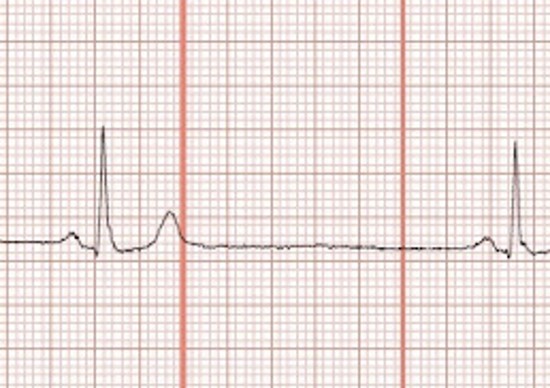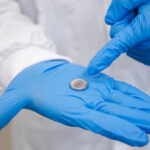When you think of the word conversion it’s most often associated with an ideology or religion. You become a convert. More recently the term is associated with a discredited therapy to alter the sexual orientation of individuals. To these two meanings, I can now add a third. Conversion along with the word pause is used to describe something that has been happening to me, episodes when my heart stops beating.
Why am I writing about this? Because after two years of dealing with my brush with COVID-19, in April 2020, my heart has not returned to normal, and getting answers and treatment has become a rollercoaster ride.
When first diagnosed with Paroxysmal atrial fibrillation (AF) it happened while I was visiting a hospital emergency room to check out symptoms I had been experiencing. These were an increasingly hoarse throat (my voice changed) the onset of a persistent dry cough, and aches and chills (no fever, no loss of sense of smell and taste, and no trouble breathing). I had gone for a COVID-19 test a week before the trip to the emergency room. The test result showed negative. Yet the symptoms persisted.
The doctor who examined me did bloodwork that showed I had elevated troponin levels, a complex of three proteins responsible for heart muscle contraction, and an indicator that my heart muscle was being damaged by something. If the levels in my blood continued to increase I was in danger of an imminent heart attack or stroke. The doctor ordered an ultrasound and an electrocardiogram (ECG). The former showed the upper part of my heart had enlarged. The latter indicated an irregular heartbeat. The doctor said to me that I likely had a viral infection and most likely COVID-19. The emergency room had seen a number of similar cases to mine since the pandemic erupted.
Paroxysmal AF occurs when the upper chambers of the heart beat irregularly. Instead of initiating normal sinus rhythm, the two atria fibrillate or quiver. That doesn’t stop blood flowing from the upper to lower chambers, but it does upset the normal heartbeat causing the heart to race. In my case, the paroxysmal reference meant that my heart was going in and out of AF. Sometimes everything was normal. At other times I would experience a racing heartbeat exceeding 120 beats per minute and lasting from minutes to hours.
When an AF episode ends what happens inside the heart? An apt analogy is the electric control panel in every home that either contains circuit breakers or fuses. When lights go out you can go to the box to reset a tripped circuit or replace a blown fuse. In Paroxysmal AF that reset is automatic with the heartbeat returning to normal sinus rhythm.
So where does conversion come into the conversation? I had worn a Holter Monitor (a portable ECG device) for 14-days back in the latter part of November of last year. In this pandemic-disrupted world, it took a while before a cardiologist got back to me about what the Holter showed. In a video call last week I learned about conversion in an entirely new context. The cardiologist told me that over the two weeks of wearing the Holter Monitor I had been in AF for 8.5% of the time and had experienced seven conversion pauses lasting between 3.5 and 5 seconds. A pause is exactly what you think it means. If we carry the analogy of the fuse box, it is as if a power fluctuation caused the lights to go out and it took five seconds to reset the circuit breaker for them to come back on. The cardiologist said the AF occurrences were less of a concern than the conversion pauses, particularly one lasting 5 seconds (apparently happened in my sleep).
A conversion pause is a heartbeat going full stop before starting again. And a conversion pause of 5 seconds is not common. The cardiologist informed me that I was in the high-risk category for treatment because of these pauses in my heartbeat.
So what’s the next chapter in this COVID-19 journey I have been on? I am waiting for a second ablation procedure to try and identify and kill the cells that are triggering the AF episodes. The cardiologist told me that 20% of the ablation procedures his practice does are for second ablations. And if this procedure doesn’t do the trick, then I will probably require a pacemaker to ensure that I don’t hear the word conversion used in the future in reference to my heart.
















